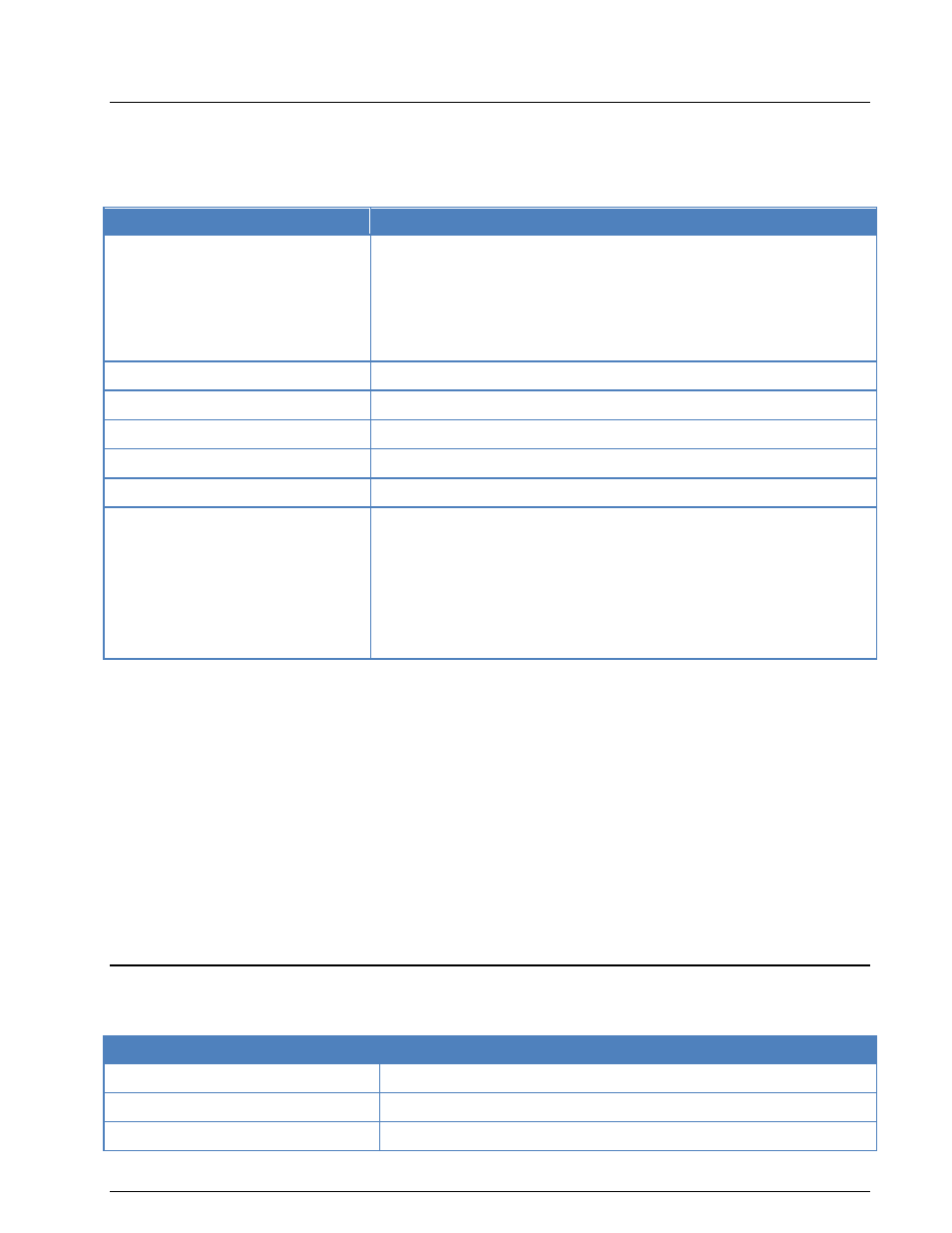Dpmr, Dtmf – Wavecom W61PC V7.5.0 User Manual
Page 152

142
Transmission Modes
WAVECOM Decoder W61PC/LAN Manual V7.5
Motorola markets DMR radio systems as MOTRBO, known sometimes in Asia as XiR.
dPMR
dPMR (digital Private Mobile Radio) is an open ETSI standard published under the references TS 102 490
(License-free) and TS 102 658 (Licensed). It uses FDMA technology with a channel spacing of 6.25 kHz
and supports voice and data applications. The modulation scheme is 4FSK with a bit rate of 4800 bps.
Parameter
Value
Frequency range
Unlicensed: ETSI TS 102 490
446.100 - 446.200 MHz (CEPT ECC/DEC/(05)12)
149.01875 - 149.11875 MHz
Licensed: ETSI TS 102 658
Licensed PMR frequency bands
Operation modes
FDMA, digital voice and data system
Modulation
4FSK (constant envelope FSK)
Symbol rate
2400 Bd
Receiver settings
BW ≥ 6.25 kHz
Input format(s)
IF
Additional Info
Voice codec: AMBE+2 (3600 bps)
Bit rate: 4800 bps
Supported Modes
dPMR446
dPMR Mode 1
dPMR Mode 2
TS 102 490 covers only license-free hand portable equipment operating in peer-to-peer mode. The radios
should have an integral antenna and are limited in their output power. The standard is also called as
dPMR446.
TS 102 658 uses the same air interface technology as in dPMR446 without the limitations of the license-
free counterpart. It supports different levels of functionality as listed below.
Mode 1: Peer-to-peer direct network
Mode 2: Conventional repeater network
Mode 3: Managed centralized network
The current version of the dPMR decoder supports the Modes 1 and 2 as well as the license-free dPMR446
operation.
To use the mode set Offset to the IF output of the receiver. Decoded voice will be saved in a “.wav” file in
the default Data-Output directory. Use the Mute button to mute or un-mute live voice output to the
speaker.
DTMF
The entire call number is transmitted by consecutive tones in decade sequence.
Parameter
Value
Frequency range
VHF/UHF
Operation modes
Analogue Selcal
Modulation
FM, SUB Tones
